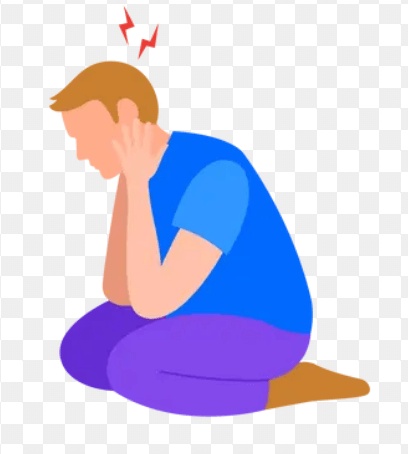Jonzing, in its simplest form, refers to a feeling of extreme boredom, restlessness, or unease. When someone is Jonzing, they experience a lack of motivation, interest, or excitement in their current surroundings or activities. It can manifest as a sense of being disconnected from the world around them, leading to a desire for change or something new to break the monotony.
In the ever-evolving landscape of language and culture, new words and phrases continue to emerge. One such term that has gained traction in recent times is “Jonzing.” Whether you have heard this word used casually or have seen it trending on social media, understanding its meaning and significance can provide valuable insights into contemporary culture. In this article, we will explore the origins, behaviors associated with Jonzing, its psychological impact, coping strategies, and how it is represented in popular culture.
The Origin of the Term “Jonzing”
The term “Jonzing” is believed to have originated from African-American Vernacular English (AAVE) in the United States. It likely emerged from the fusion of the words “jones” (meaning a craving or desire) and “zing” (meaning energy or enthusiasm). Over time, the term gained popularity beyond its cultural boundaries and found its way into mainstream discourse.
Identifying Jonzing Behaviors
Recognizing Jonzing behaviors is essential for understanding its impact on individuals and communities. Some common signs of Jonzing include procrastination, aimlessness, difficulty in finding enjoyment, and a general feeling of being stuck in a rut. People experiencing Jonzing may also exhibit restlessness, leading them to seek out new experiences or distractions to alleviate their feelings of discontent.
Understanding the Psychological Impact of Jonzing
Jonzing can take a toll on an individual’s mental well-being. It can lead to feelings of frustration, dissatisfaction, and even mild depression. The constant longing for something more exciting or fulfilling can create a sense of emptiness, impacting overall life satisfaction and productivity.
Coping Strategies for Dealing with Jonzing
If you find yourself Jonzing, there are several strategies you can employ to navigate through this phase. First and foremost, acknowledging your feelings and being compassionate with yourself is crucial. Engaging in new hobbies, setting achievable goals, and seeking support from friends and family can help combat Jonzing tendencies. Additionally, practicing mindfulness and staying present can aid in finding contentment in everyday activities.
Jonzing in Popular Culture
The concept of Jonzing has found its way into popular culture, particularly in music and social media. Many artists have referenced it in their lyrics, describing moments of feeling disconnected or uninspired. On social media platforms, hashtags related to Jonzing are used to express shared feelings of boredom or dissatisfaction. This phenomenon showcases how language and culture interact in contemporary society.
How to Support Someone Experiencing Jonzing
If you notice a friend or loved one going through a Jonzing phase, offering support and understanding can be valuable. Encouraging open communication, suggesting new activities, or simply being there to listen can make a significant difference. It’s essential not to trivialize their feelings and be patient as they work through this period of disengagement.
The Positive Side of Jonzing
While Jonzing is often viewed negatively, there can be a positive aspect to it. Feeling discontent can motivate individuals to explore new opportunities, discover passions, and make necessary adjustments to improve their lives.
Burstiness and Perplexity in Jonzing Phenomenon
The concepts of burstiness and perplexity are evident in the Jonzing phenomenon. Burstiness refers to the irregular and unpredictable occurrence of certain events or behaviors. In the context of Jonzing, these bursts of restlessness or boredom can happen unexpectedly, making it difficult to anticipate when they might occur.
Perplexity, on the other hand, refers to the state of being puzzled or confused. Jonzing can be perplexing because it may not always have an apparent cause or reason. This adds to the complexity of understanding and addressing the experience.
Jonzing in the Age of Social Media
Social media platforms have provided a space for the expression of feelings on a global scale. With a vast audience and instant connectivity, individuals can share their thoughts and emotions related to Jonzing, finding solace in the fact that they are not alone in their experiences. However, the constant exposure to curated content can also exacerbate feelings of dissatisfaction and restlessness.
Conclusion
In conclusion,it is a term that encapsulates feelings of restlessness and dissatisfaction, leading individuals to seek change and excitement in their lives. Originating from African-American Vernacular English, it has permeated mainstream culture and found representation in various forms of media. Understanding the psychological impact and adopting coping strategies can help individuals navigate through this phase of discontentment positively.
FAQs
- Is Jonzing a serious mental health concern? it is generally considered a temporary phase of restlessness and boredom. However, if these feelings persist or significantly impact daily life, seeking professional help might be beneficial.
- Can Jonzing be contagious? While itself is not contagious, being around someone experiencing it can influence our emotions and behaviors. It’s essential to offer support and understanding to those going through a phase.
- Is Jonzing the same as depression? Jonzing and depression share some similarities, such as feelings of discontent and low motivation. However, depression is a complex mental health condition that involves a range of symptoms beyond feelings.
- Can embracing Jonzing be productive? Embracing it as an opportunity for self-reflection and growth can be productive. It can prompt individuals to explore new interests, set goals, and make positive changes in their lives.
- Does Jonzing affect creativity? it can both hinder and spark creativity. While feeling stuck in a rut may hinder creative inspiration, seeking out new experiences during a this phase can lead to fresh perspectives and ideas.





